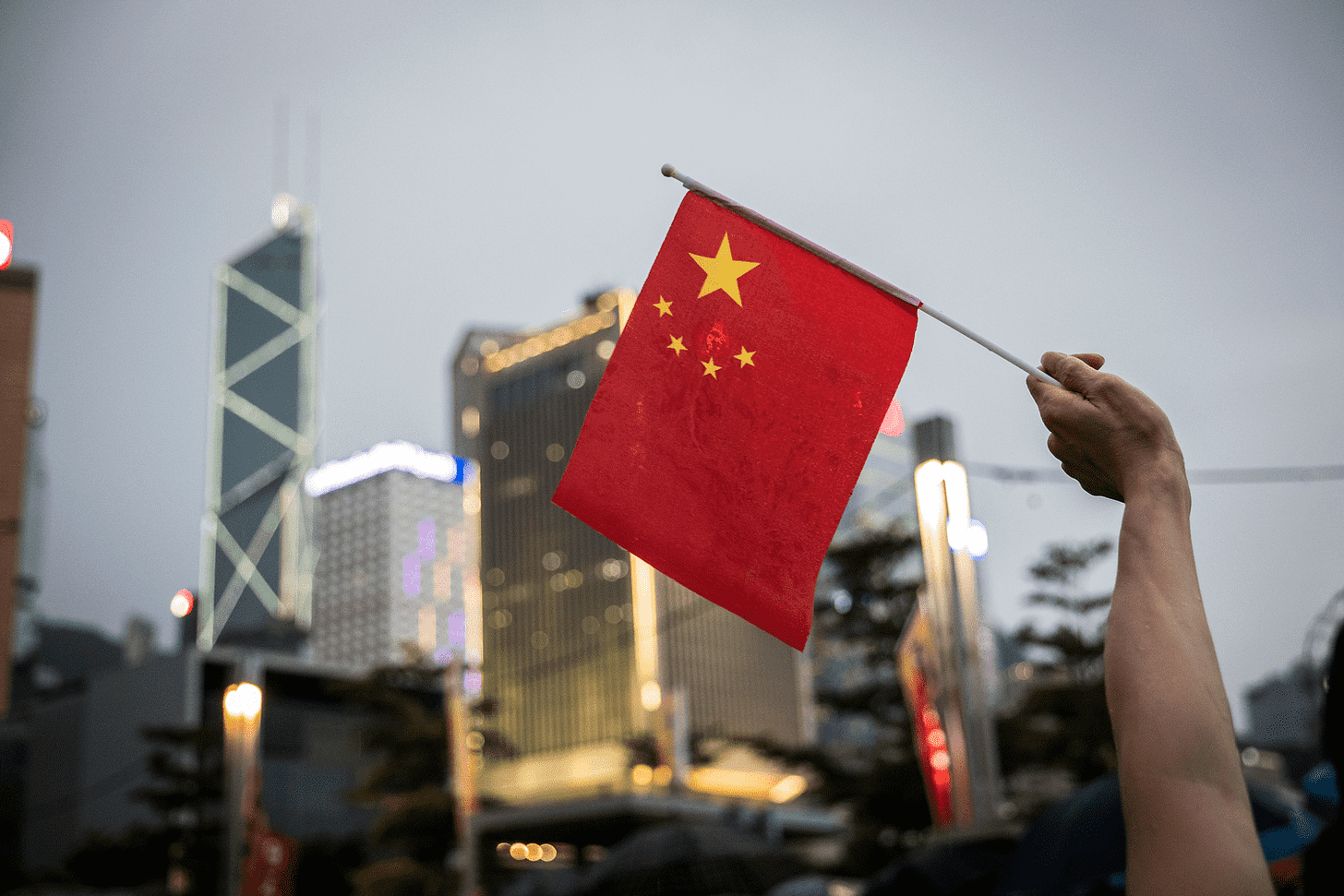Policy Boost, Market Surge: A New Dawn for U.S.-Listed Chinese Stocks?
A perfect storm of positive catalysts sent shockwaves through the market today, igniting a powerful rally in Chinese tech stocks and offering the most significant glimmer of hope yet for their U.S.-listed counterparts. The Hang Seng Tech Index surged an incredible 4.2% to a near four-year high, a rally not just built on fleeting sentiment, but on a concrete and powerful new domestic policy initiative aimed at unlocking China's massive consumer market.
This surge, which saw giants like Baidu jump 19% and Alibaba climb over 5% in Hong Kong, is a direct reaction to a sweeping new government plan. On September 5, nine central government departments jointly announced 19 measures to expand service consumption, a decisive move to stimulate domestic spending. For investors who have been navigating the turbulent waters of geopolitical tensions, the question is now clear: Is this policy-driven rally the turning point that finally unlocks the deep value in U.S.-listed Chinese stocks?
The Engine Room: Unpacking China's Consumer Stimulus
At the heart of today's market euphoria is a clear and targeted government strategy. The "19 measures" are designed to invigorate the economy by boosting consumer demand in high-potential areas like culture, tourism, sports, and digital services. This is not a vague promise but a detailed action plan that includes financial support for businesses, development of new consumption scenarios, and efforts to attract more foreign visitors.
For China's tech and e-commerce behemoths, this policy is a direct tailwind.
Alibaba (BABA) and JD.com (JD), whose platforms are the primary arteries for commerce in China, are perfectly positioned to capture the wave of government-encouraged spending. JD.com's recent 22% year-over-year revenue growth, driven by its unparalleled logistics network, provides a strong foundation to capitalize on this new momentum.
The policy's focus on digital services and innovative consumption models also directly benefits companies like Baidu (BIDU) as they integrate their services deeper into the fabric of daily life.
From Hong Kong to Wall Street: The Ripple Effect
Today's explosive performance in Hong Kong is more than just a regional event; it's a leading indicator for Wall Street. The fundamental business improvements driven by this domestic stimulus will inevitably flow through to the bottom lines of these companies, impacting their U.S.-listed American Depositary Receipts (ADRs).
When this fundamental boost is combined with their current valuations, the case becomes even more compelling. Compared to their American peers, Chinese tech stocks are trading at a significant discount, suggesting a major potential for re-rating as this positive news is digested by the global market.
JD.com is trading at a P/E multiple of under 13x.
Baidu's forward P/E ratio is a mere 10.8x, a fraction of Google's 20.1x.
Alibaba remains deeply undervalued in the eyes of many analysts, with its intrinsic value far exceeding its current market price.
Laying the Foundation: AI and Cloud as Growth Amplifiers
While the consumer stimulus is the immediate catalyst, it's important to remember that this policy is pouring fuel on an already-burning fire of technological innovation. The massive, ongoing investment in Artificial Intelligence and cloud computing provides a powerful technological foundation for these companies to capitalize on increased economic activity.
China's top tech giants are projected to spend a colossal $32 billion on AI in 2025. This investment is already yielding results, with Alibaba's Cloud Intelligence Group returning to rapid growth and Baidu's AI-cloud business expanding significantly. This technological prowess ensures that as consumer demand grows, these companies have the cutting-edge services and infrastructure to meet it.
A Note of Caution: Risks Still on the Horizon
Despite the overwhelmingly positive domestic news, investors cannot afford to ignore the persistent external risks. The complex geopolitical relationship between the U.S. and China remains a major source of uncertainty. Issues like tariffs, tech restrictions, and the regulatory shadow cast by events like the forced restructuring of TikTok USA are real and can impact investor sentiment. China's own economic recovery, while supported by these new policies, could still prove to be uneven.
The Verdict: A Policy-Backed Bull Case
Today's events signal a potential paradigm shift. The convergence of a powerful, pro-growth government policy and a decisive, positive market reaction has created the most compelling bull case for Chinese tech stocks in years. While external geopolitical risks have not vanished, the sheer force of the domestic drivers—a nationwide push to boost consumption combined with world-class AI innovation—cannot be understated.
For investors with a long-term horizon, the rally on September 17th may be more than just a one-day wonder. It could be the beginning of a sustained re-rating, closing the valuation gap between these undervalued tech giants and their global peers as the world recognizes the power of China's policy-driven growth engine.


